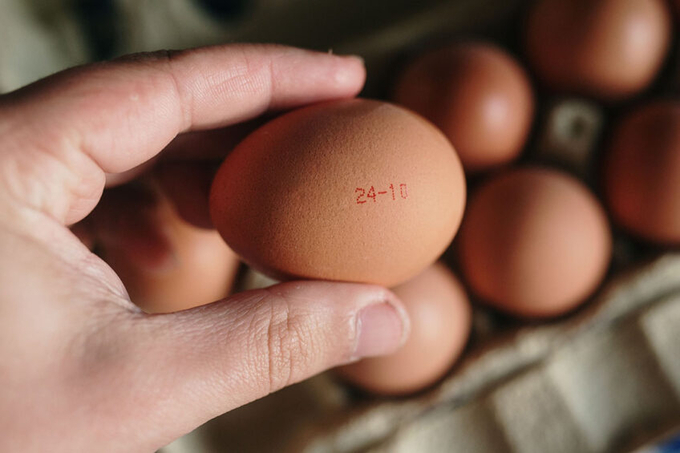June 15, 2025 | 05:33 GMT +7
June 15, 2025 | 05:33 GMT +7
Hotline: 0913.378.918
June 15, 2025 | 05:33 GMT +7
Hotline: 0913.378.918

Precision nutrition strategies to extend the laying cycle are becoming increasingly important. Photo: Canva
Ralph Bishop, Premier Nutrition poultry nutrition and innovation manager, spoke about getting the most out of birds from chick starter rations through to 50-week layers.
Speaking at the British Free Range Producers annual conference in the West Midlands in the UK, Bishop highlighted the importance of getting chick starter diets right to ensure good pullet skeletal development in the first 8-10 weeks, along with organ (4-5 weeks) and muscle development (5-10 weeks).
A dense ration diet high in energy (12MJ) and a highly digestible balanced protein was important for organ developments, while close attention to detail needed to be made around calcium and phosphorous intake to ensure strong bone development. The inclusion of phytase enzymes in rations was also useful, he added.
Although weeks 10-16 were generally quiet for bird development, Bishop said it provided an opportunity to prepare future stresses and strains posed by moving the pullets to layer farms, vaccination and the start of the egg cycle. At this stage, it was vital to train pullets to eat and build the gizzard and gastrointestinal tract, which could be aided by coarser particles and insoluble fibres.
The period between 16 weeks and maturity at 30 weeks sees feed consumption per day rise from 75g/bird/day to around 120g to ensure the corresponding bodyweight rises from 1,300-1,400g to 1,900g, necessitating a suitable dense ration.
This was important as the birds were likely to move from no egg production at week 16 to 90% production by week 22: “Intake, intake and more intake is crucial,” he said.
At 30 weeks, producers should ask themselves what areas of improvements they would like to see, including thinking ahead about egg size and the amount of calcium, phosphorus and vitamin D3 should be administered to keep shell quality high.
Bishop said farmers needed to be proactive on egg size, working towards eggs weighing 62-63g . Hens producing eggs weighing in at 65g could struggle with shell quality later in life.
He addressed the issue of calcium supply, saying producers were wrong to up the intake beyond 4% as studies from the University of Guelph showed a decline in shell thickness and shell strength as well as build-up of kidney ash.
Charles Macleod, St David’s Poultry commercial manager of layers, spoke of the importance of clean water to prevent issues such as gut dysbiosis, which could reduce egg production and quality, lead to increased mortality and morbidity, decreased feed efficiency and growth performance, impaired immune system and increased susceptibility to other infections and gut inflammation.
Macleod said producers needed to understand that feed composition as well as temperature and humidity significantly influenced water consumption.
(PW)

(VAN) Extensive licensing requirements raise concerns about intellectual property theft.

(VAN) As of Friday, a salmonella outbreak linked to a California egg producer had sickened at least 79 people. Of the infected people, 21 hospitalizations were reported, U.S. health officials said.

(VAN) With the war ongoing, many Ukrainian farmers and rural farming families face limited access to their land due to mines and lack the financial resources to purchase needed agricultural inputs.

(VAN) Vikas Rambal has quietly built a $5 billion business empire in manufacturing, property and solar, and catapulted onto the Rich List.

(VAN) Available cropland now at less than five percent, according to latest geospatial assessment from FAO and UNOSAT.

(VAN) Alt Carbon has raised $12 million in a seed round as it plans to scale its carbon dioxide removal work in the South Asian nation.

(VAN) Attempts to bring down the price of the Japanese staple have had little effect amid a cost-of-living crisis.